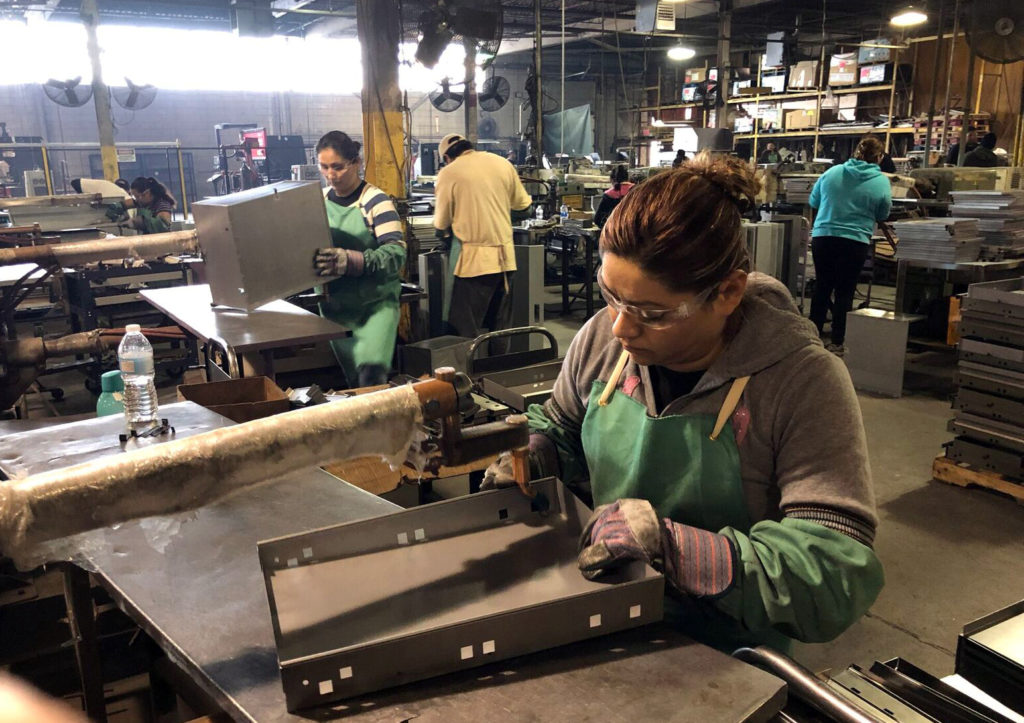
As a logistics coordinator, you will ensure that the goods arrive at the destination they are supposed to be. This field will help you ensure that goods arrive at your customer's doorstep in a timely manner. You can find out more about logistics in our article. You'll also learn about the role of a customer service specialist, Inventory analyst, and supply chain manager. The following are some of top jobs in logistics.
Logistics coordinator
Monster has thousands of job opportunities for logistics coordinators. This type of job requires you to be hands-on. Candidates with minimal experience can usually take up training through an internship or apprenticeship, although they may also need to have some industry experience. If you have extensive previous experience in the logistics field, you may also want to consider applying for a job as a logistics coordinator.

Customer service specialist
Customer service specialists manage and deliver customer service. They are responsible for communicating with customers every day, coordinating inland transport, and resolving customer issues and complaints. They also manage customer relationships and coordinate appointments. As a customer service specialist, you will also coordinate and document all necessary documents to ensure the delivery of goods on time and within budget.
Inventory analyst
An Inventory Analyst manages inventory productivity and maintains service level. Their primary duties include managing inventory replenishment and order fulfillment for TSC Feed Programs. They manage the inventory levels of their product categories and support assortment and merchandise plan. They collect data and analyze trends to plan article-site replenishment at stores. They may also help with marketing and promotion activities. They often analyze sales data and create new strategies to improve business efficiency.
Supply chain manager
A supply chain manager oversees the movement and distribution of materials and goods from suppliers, manufacturers, customers, and other parties. This role requires a broad range of skills. Typically, a bachelor's degree in business administration is required. Employers prefer candidates with master's degrees. You can apply for the job of supply chain manager in many ways. This career field is available to learn more. Consider getting an associate's in business administration if you are interested in a career in supply chain management.

Freight agent
While you're creating your job description, make sure to include a section on your cargo and freight agent responsibilities. A job description should list the essential responsibilities of the position so that potential applicants are able to easily see what they will need to do each day. For qualified applicants to pay attention, make sure you use strong action verbs. You should also provide a detailed list with qualifications that you require to fill the job.
FAQ
What are the four types of manufacturing?
Manufacturing is the process of transforming raw materials into useful products using machines and processes. It includes many different activities like designing, building and testing, packaging, shipping and selling, as well as servicing.
What does it mean to warehouse?
Warehouses and storage facilities are where goods are kept before being sold. It can be either an indoor or outdoor space. It could be one or both.
Why is logistics important in manufacturing
Logistics are essential to any business. They help you achieve great results by helping you manage all aspects of product flow, from raw materials to finished goods.
Logistics plays a significant role in reducing cost and increasing efficiency.
What are the 7 Rs of logistics management?
The acronym 7R's for Logistics stands to represent the seven basic principles in logistics management. It was developed by the International Association of Business Logisticians (IABL) and published in 2004 as part of its "Seven Principles of Logistics Management" series.
The acronym consists of the following letters:
-
Responsive - ensure all actions are legal and not harmful to others.
-
Reliable: Have faith in your ability or the ability to honor any promises made.
-
Be responsible - Use resources efficiently and avoid wasting them.
-
Realistic - Consider all aspects of operations, including environmental impact and cost effectiveness.
-
Respectful – Treat others fairly and equitably.
-
Be resourceful: Look for opportunities to save money or increase productivity.
-
Recognizable: Provide customers with value-added service
Statistics
- Many factories witnessed a 30% increase in output due to the shift to electric motors. (en.wikipedia.org)
- (2:04) MTO is a production technique wherein products are customized according to customer specifications, and production only starts after an order is received. (oracle.com)
- According to the United Nations Industrial Development Organization (UNIDO), China is the top manufacturer worldwide by 2019 output, producing 28.7% of the total global manufacturing output, followed by the United States, Japan, Germany, and India.[52][53] (en.wikipedia.org)
- [54][55] These are the top 50 countries by the total value of manufacturing output in US dollars for its noted year according to World Bank.[56] (en.wikipedia.org)
- According to a Statista study, U.S. businesses spent $1.63 trillion on logistics in 2019, moving goods from origin to end user through various supply chain network segments. (netsuite.com)
External Links
How To
How to Use Lean Manufacturing in the Production of Goods
Lean manufacturing (or lean manufacturing) is a style of management that aims to increase efficiency, reduce waste and improve performance through continuous improvement. It was first developed in Japan in the 1970s/80s by Taiichi Ahno, who was awarded the Toyota Production System (TPS), award from KanjiToyoda, the founder of TPS. Michael L. Watkins published the first book on lean manufacturing in 1990.
Lean manufacturing is often described as a set if principles that help improve the quality and speed of products and services. It emphasizes eliminating waste and defects throughout the value stream. Lean manufacturing is called just-in-time (JIT), zero defect, total productive maintenance (TPM), or 5S. Lean manufacturing seeks to eliminate non-value added activities, such as inspection, work, waiting, and rework.
Lean manufacturing can help companies improve their product quality and reduce costs. Additionally, it helps them achieve their goals more quickly and reduces employee turnover. Lean manufacturing is a great way to manage the entire value chain including customers, suppliers, distributors and retailers as well as employees. Many industries worldwide use lean manufacturing. Toyota's philosophy has been a key driver of success in many industries, including automobiles and electronics.
Lean manufacturing includes five basic principles:
-
Define Value - Identify the value your business adds to society and what makes you different from competitors.
-
Reduce waste - Get rid of any activity that does not add value to the supply chain.
-
Create Flow – Ensure that work flows smoothly throughout the process.
-
Standardize & simplify - Make processes consistent and repeatable.
-
Build Relationships- Develop personal relationships with both internal as well as external stakeholders.
Although lean manufacturing has always been around, it is gaining popularity in recent years because of a renewed interest for the economy after 2008's global financial crisis. Many companies have adopted lean manufacturing methods to increase their marketability. In fact, some economists believe that lean manufacturing will be an important factor in economic recovery.
Lean manufacturing is now becoming a common practice in the automotive industry, with many benefits. These include higher customer satisfaction levels, reduced inventory levels as well as lower operating costs.
The principles of lean manufacturing can be applied in almost any area of an organization. However, it is particularly useful when applied to the production side of an organization because it ensures that all steps in the value chain are efficient and effective.
There are three main types:
-
Just-in-Time Manufacturing: Also known as "pull systems", this type of lean manufacturing uses just-in-time manufacturing (JIT). JIT stands for a system where components are assembled on the spot rather than being made in advance. This approach is designed to reduce lead times and increase the availability of components. It also reduces inventory.
-
Zero Defects Manufacturing (ZDM): ZDM focuses on ensuring that no defective units leave the manufacturing facility. If a part is required to be repaired on the assembly line, it should not be scrapped. This also applies to finished products that need minor repairs before being shipped.
-
Continuous Improvement (CI), also known as Continuous Improvement, aims at improving the efficiency of operations through continuous identification and improvement to minimize or eliminate waste. Continuous Improvement (CI) involves continuous improvement in processes, people, tools, and infrastructure.